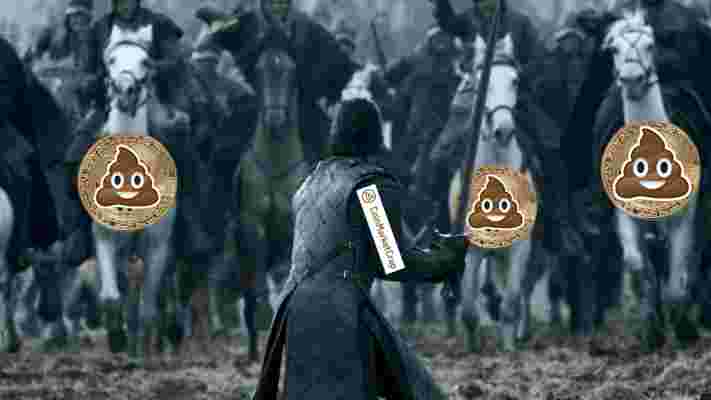Tanzania is intent on getting into bed with blockchain tech, but wise officials have urged caution before rushing into anything.

The Tanzanian government is prepping to conduct thorough research into distributed ledgers (DLT), but the move already has its skeptics, local media reports.
At a recent conference, government official Dr. Jim Yonazi urged ICT professionals to help his government determine the power and scope of DLTs and blockchains before it made any big decisions.
Ominously, he reportedly then expressed belief that the Tanzanian governments research would help shape the policies, laws, and regulations required to ensure blockchain technology doesn’t threaten government stability.
The African continent is fast becoming a battleground for blockchain evangelists. Not just Tanzania, but many African nations suffer from data management problems, particularly for voting, natural resources, land administration, authenticity certificates, e-commerce, media, and agriculture.
Many DLT entrepreneurs have headed to Africa to help. Earlier this year, Cardano revealed it would send blockchain missionaries to Ethopia, training programmers on how to use the tech to reshape the nation’s agricultural sector.
In Uganda, cryptocurrency exchange Binance is meant to be working with young entrepreneurs to build DLT-powered solutions to improve the lives of everyday citizens .
While it still may be too early to tell if the sum of all the efforts in Africa have really made a difference to those who need help the most, the UN does believe blockchain tech is capable of bringing positive change.
It recently revealed solid plans to bring DLT to Sierra Leone , in a bid to alleviate the credit crisis currently swallowing its economy.
This CoinMarketCap parody site tracks Bitcoin’s market cap, plus 99 shitcoins
The cryptocurrency market is a confusing place at the best of times. All that complicated technology and all those names of coins that aren’t Bitcoin. There’s a lot to take in, but worry no more.

Meet CoinMarketCrap . A knock-off of, you guessed it, popular cryptocurrency market information site, CoinMarketCap. It appears the site launched earlier this year .
CoinMarketCrap neatly does away with all the posturing and gesticulating in the cryptocurrency market for a simpler approach. Where only two types of coin exist: Bitcoin and Shitcoins.
Clearly, whoever created the site is a fan of Bitcoin.
Rather than listing each cryptocurrency it only lists Bitcoin by name. The other 99 coins are named “Shitcoin,” followed by a number denoting the coin‘s respective rank in the shitcoin charts. Therefore, if a coin is not Bitcoin it must therefore be a shitcoin.
In pretty much every other sense CoinMarketCrap replicates much of the information to be found on the legitimate and less smutty CoinMarketCap. Looking at the numbers, “ Shitcoin #1″ must be Ethereum, “Shitcoin #2” must be Ripple … I think you get the idea.
Honestly, there’s not much more to it than that.
We know that most of the figures displayed on these types of coin tracking website are best taken with a pinch (or spadeful) of salt, so in all cases, maybe it’s best we don’t take it too seriously.
But I quite like the elegance of referring to non-Bitcoin projects as numbered shitcoins.
Belgium warns citizens against these 99 cryptocurrency scam sites
The Belgian Financial Services and Markets Authority (FSMA) continues to warn netizens of the dangers of dealing with cryptocurrency businesses having identified several new blatant scam sites.

The regulator announced today that it has added another 21 recognized cryptocurrency scam sites to its ever growing list. The authority now recognizes 99 “cryptomonnaies” (Belgium’s surprizingly mellifluous word for cryptocurrencies) trading websites as being untrustworthy. At this rate, the list will be well over 100 by the new year.
Here’s the list of sites to avoid:
These sites are running about as simple a scam as you can imagine. They claim to sell Bitcoin, Ethereum, or other cryptomonnaies to visitors. The buyer will send their fiat to the merchant, who then simply walks away, without ever sending the cryptomonnaies owed to the buyer.
The FSMA has issued numerous warnings this year , and has been updating its list of known scammers since the end of February this year; sadly complaints continue to roll in.
Cryptomonnaies scams come in all shapes and sizes. They can be schemes masquerading as “airdrops” with the potential of winning free gifts. They could even be wrapped up in an ICO with the promise of great returns, which never materialize . Or maybe you thought you were buying a coin on the Play Store , only to find out it’s a low resolution image of the coin’s logo.
Let’s face it, scams, shills, and shitcoins are a fact of the cryptomonnaie life. Be careful out there.











